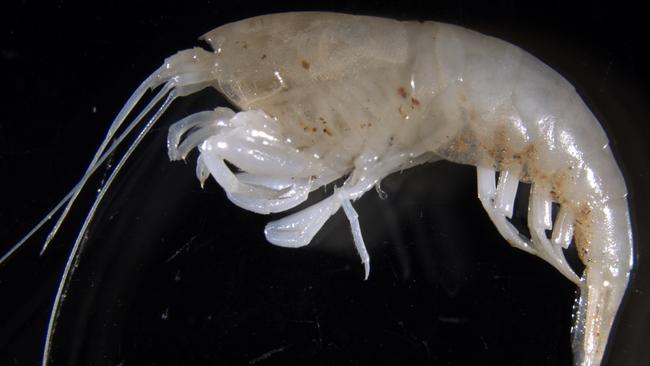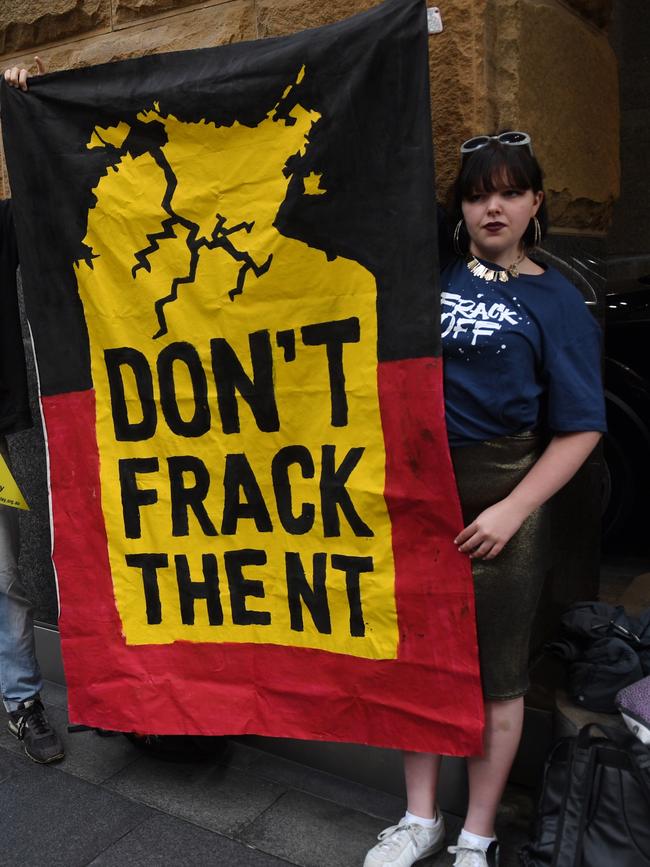NT Gov grants $288,000 fracking contract to WA firm
NT government has been accused of “shopping around” for independent fracking research after snubbing CDU research.
News
Don't miss out on the headlines from News. Followed categories will be added to My News.
THE Northern Territory government has been accused of ‘shopping around’ for independent research after failing to award a contract to Darwin scientists who published anti-fracking findings.
Charles Darwin University researchers have voiced their concern after a $287,991 contract to assess the development risks to the Beetaloo Sub-basin was awarded to a Western Australian private company.
The CDU team had already conducted two baseline studies into the NT aquatic ecosystems, one funded by the Gas Industry Social and Environmental Research Alliance and other by the Commonwealth Government.
In February, the CDU and CSIRO team published their findings after testing water samples from underground aquatic systems at potential fracking sites at the Beetaloo Sub-basin and Roper River region.

The scientists found the samples were teeming with life, including 11 new species of underground aquatic creatures, known as stygofauna, which work to keep the water clean.
The animals included tiny snails, crustaceans and an enormous – by stygofauna standards – 20mm colourless blind shrimp.
“The discovery of these new NT species has implications for all extractive industries affecting groundwater,” the scientists wrote in The Conversation in February.
“It shows the importance of thorough assessment and monitoring before work begins, to ensure damage to groundwater and associated ecosystems is detected and mitigated.”

Despite CDU conducting the early research, the NT Government announced in September the environmental assessment studies for the Beetaloo sub-basin would be completed by Western Australian private company, Biota Environmental Sciences.
A CDU researcher, who did not wish to be named, said they were extremely disappointed about the decision.
The researcher said the university had reached the final stages of the procurement process, having signed documents with the government and were waiting for a purchase order.
“We were ready to go out in the field,” they said.
The researcher said the contract flew in the face of the agreement between the university and the NT Government’s partnership agreement, a framework for cooperation to boost local research capacity.
“I feel as though on one hand it’s political, and on the other hand the people in charge don’t have a handle on the politics of it anyway.”
The researcher said the tender process had been referred to the NT Buy Local Industry Advocate, but a spokesman said he could not confirm if an investigation was underway.
A Department of Environment, Parks and Water Security spokeswoman said the stygofauna was an extremely specialised field and the Department aimed to secure the best available expertise nationally.
She said a select tender was granted after significant market research to meet the government’s technical requirements.
“The stygofauna contract was awarded on the basis of demonstrated experience and expertise in the design and delivery of stygofauna surveys and assessments,” she said.
“Biota have a track record of consistently providing a high scientific standard of biological reporting for environmental assessments.”
The Department said agencies were not mandated to use the NT Government and CDU partnership agreement.
Anti-fracking advocates, Protect Country Alliance has accused the NT Government of
shopping around for ‘independent’ research supportive of the industry.

Coordinator Graeme Sawyer said the government was “playing funny buggers” with the science and distanced themselves from unsupportive research.
“All the risks of the fracking and problems that comes with it will impact all the river systems in the Territory,” Mr Sawyer said.
“The Government here have pushed it under the carpet.
“And now they’ve shot the messenger.”
“These are risks associated with (fracking) that have not been evaluated.
“The government is trying to put people who will do they job they want, not the work the public needs.
“It smacks all the way down.”
Charles Darwin University Research Institute for the Environment and Livelihoods director Sam Banks said while the university would have liked to continue their research, it remained supportive of future collaboration with the government.
“We would like to continue our role with the NT Government,” Prof Banks said.
“We’re here to support the NT Government.”
Biota was contacted for comment, but directed questions to the NT DEPWS.





